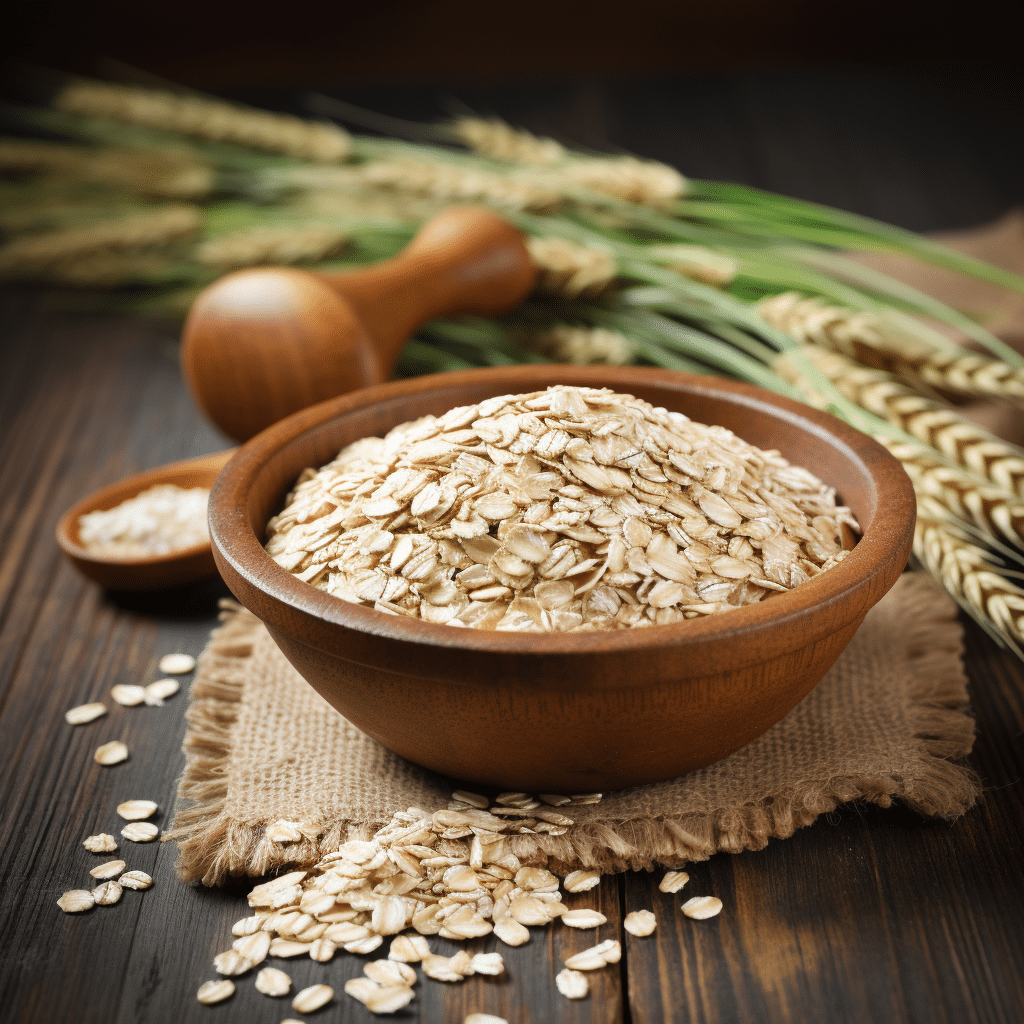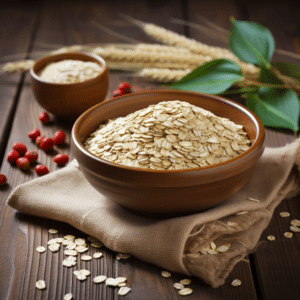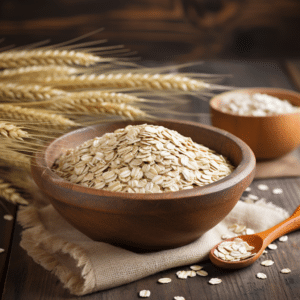
Exploring Oats: Origin Benefits and Types Revealed
Oats: Origin Health Benefits Nutritional Value Types are cereal grains from a plant known as Avena Sativa. It’s a common misconception that oats are created from wheat. They are distantly related, and it is a popular breakfast meal in many regions worldwide. Oats were first domesticated in the Middle East and Europe. In this article, we have a deeper look at the origin, health benefits, nutritional value, and possible side effects of eating oats.

Where Do Oats Come From?
Origin
Oat grew in the Near East as a wild plant in the early centuries. In the 2500s BC, it was domesticated in the Middle East and Europe and later spread to other regions worldwide. The current top producers of oat are Russia, Canada, Australia, Poland, and China. Oat thrives well in temperate and subtropical climates with cool, rainy weather, and it can tolerate mild frost and be grown during the kick-off winter. Aside from being produced for human consumption, oats are also used as animal feed.
Processing
After maturity, oats are harvested and delivered to the millers. Here, five steps are followed to obtain the final product.
- Cleaning and sizing is the first stage where impurities such as pebbles and sand are removed, and the oats are then separated according to their sizes before dehulling.
- Dehulling. At this stage, the husk is removed, paying attention not to damage or break the grains.
- Dehulled oats are then stabilized through a process known as kilning. The main objective is to prevent enzymatic rancidity on the grain.
- Sizing. After dehulling, the oats are sized into whole oats groats, coarse steel, steel cut, or fine cut groats.
- Processing. The final process is to process the oats into the desired product, such as oat flour, bran, and oat groats.
Nutritional values
Oats: Origin Health Benefits Nutritional Value Types Oats are a nutrition powerhouse. One hundred grams of unprocessed oats consist of; 389 calories, 11.6 grams of dietary fiber, 66.3grams of carbohydrates, 16.9gm of fat, 0.56ug of folate, 54mg of calcium, 5mg of iron, and 177 mg of magnesium. It also contains 4 gm of soluble fiber, zinc, 4mg, 2mg of phosphorus, 523 mg, potassium, 429 mg, and B Vitamins.
Types Of Oats
There are various types of oats.
- Raw oats are freshly harvested oats still attached to stalks and husks. They are not ready for consumption at this stage, and you will not see them in this state in stores.
- Whole oat groats. These have been dehulled and cleaned. They are nutritious and a healthy choice. Their disadvantage is that they take a long time to cook.
- Steel cut oatmeal, often known as Irish oatmeal, is made by splitting the grain with a steel blade.
- Scottish oatmeal. This type is more popular with Scotts, where they stone-grind the grains instead of using steel blades. Its users argue it forms a creamier, thicker porridge than Irish oatmeal.
- Old fashioned rolled oats. Flakes are made by steaming and rolling groats.
This process increases their shelf life as well as reduces cooking time. - Instant rolled oats. These are quick to prepare as they are pre-cooked. They are the thinnest type of oats.
- Oat flour. When oat is ground, you get flour that can be used to bake or thicken soups and stews. Though the process is tiresome, you can make a small quantity of this flour at home.
Uses Of Oats
Most families eat oats for breakfast or as a snack between meals. You can eat it as porridge or baked into bread. Did you know the first oat bread we first made in 1899 in Britain? In Scotland, it is a famous soup and stew thickener. Oat is also used in the brewing of beers, giving them a silky mouthfeel and silky body. Stouts made of oats are said to be sweeter and have a smoother flavor.
Serving Suggestions
Oats are mainly served as a breakfast meal. There are unlimited serving suggestions that include; pairing with your favorite fruits, sweet potatoes, tossing in some nuts, grated carrots, berries, peanut butter, and chocolate chips. You could also bake it into oatmeal bread.
Health Benefits Of Oats
Whole grain oats are an excellent source of phytochemicals, minerals, and vitamins. These nutrients have numerous benefits to the body, including;
- Reduces the bad cholesterol(LDL), minimizing the chances of heart diseases such as heart failure and stroke.
- The high fiber content helps to ease constipation.
- It might help in weight loss and maintaining a healthy weight. Oats keep you fuller for a long time, reducing the frequency and amount of food you eat and thus help control weight gain.
- They help lower blood sugar levels.
- They might help fight colon cancer.
- Disease- and infection-fighting oxidants can be found in abundance in oats.
- They help against skin irritation.
- Oats promote healthy gut bacteria reducing the risks of stomach infections.
- It might help relieve symptoms of asthma.
Possible Side Effects Of Oats
Oats can cause excess gas and bloat. You can avoid this by gradually increasing the amount of oats you eat. Celiac disease and other gluten-related disorders may be caused by eating some cultivars, which are not suitable for those following gluten-free diets. Oats inhibit the absorption of iron in the body. Anemic persons should take precautions and minimize their consumption. Diabetes should also consume oats in small quantities as they contain carbohydrates.

Oat Allergies
Though not common, some people suffer from oat allergies which could have instant, mid, and long-term effects. These allergies include; wheezing, tight chest, sudden decrease in blood pressure, swollen lips and tongue, confusion, and dizziness. In the long term, these allergies can lead to eczema, acid reflux, stunted growth, swelling of the small intestines, and constant stomach pains.
Oats: Origin Health Benefits Nutritional Value Types come from a plant known as Avena Sativa, native to the Middle East and Europe. There are several types of oats with loads of nutrients and health benefits, as highlighted in this article.